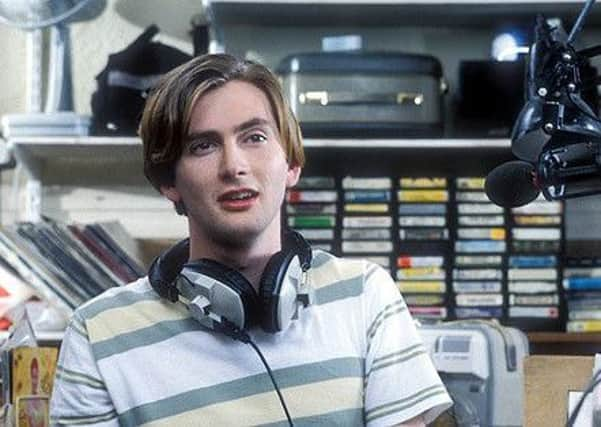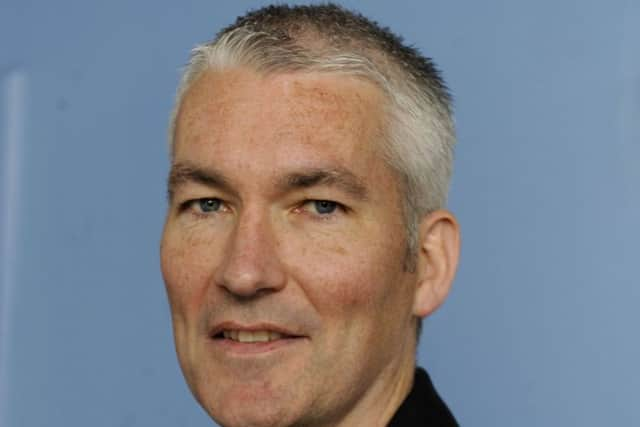The ‘loonies’ are back – and they still have to tackle a lingering stigma


The Nineties – 1994 to be precise – also saw actor David Tennant burst on to our screens in the hit comedy drama Takin’ Over The Asylum, set in a fictional Glasgow psychiatric hospital, and Support in Mind Scotland are delighted to liaise with writer Donna Franceschild, who is craftING a sequel 25 years on.
Donna received widespread praise for the way she, and her talented cast (which also included Ken Stott, Katy Murphy and Angus Macfadyen) tackled sensitive subjects such as schizophrenia, bipolar disorder, OCD and self-harm.
Advertisement
Hide AdAdvertisement
Hide AdUnderstanding of mental health conditions has come a long way since then. Thanks to the continued efforts of charities, campaigners, professionals, and – perhaps most importantly – people with lived experience, we are now taking huge steps towards breaking down stigma and discrimination.


Takin’ Over The Asylum undoubtedly contributed to that progress. It met previously taboo subjects head-on, deftly using humour, empathy and sensitivity to challenge people’s views on mental health. Franceschild, who experienced mental ill health, is planning more of the same.
She said: “Attitudes towards mental health conditions are certainly a lot better now, but I wish more things were better.
“Depression is something that most people now accept – it’s common and it’s debilitating. But, even in 2019, we still have people with mental health difficulties who are being put through demeaning work capability assessments and are being knocked back because of the underlying attitude that there is something fake. That if you really wanted to, you could overcome it, that it’s somehow down to laziness, which is ridiculous.
“I don’t understand how that is possible if we really have come that far. There is still work to be done to challenge and change attitudes.”
The central theme of Takin’ Over the Asylum was its hospital radio station, and it was particularly apt that Donna chose to reveal her plans for the long-awaited sequel live on Support in Mind Scotland’s mental health community radio station, Radio Stafford 103, which operates out of our Edinburgh resource hub, the Stafford Centre.
Rather than a hospital setting for the second series, Donna is exploring the idea of having it located in a fictional drop-in centre, and she was delighted to spend a day in the Stafford Centre as part of her research.
She said: “If I was someone who was dealing with emotional distress I would find a place like this incredibly comforting. To find that it has its own radio station was the icing on the cake!”
Advertisement
Hide AdAdvertisement
Hide AdAs well as launching the career of future Doctor Who star Tennant, the show received the ultimate accolade when it won a Bafta, and Franceschild memorably took to the stage and shouted the series catchphrase: “We are loonies and we are proud!”
In 2019, the term ‘loony’, while not quite obsolete, is starting to slip out the common vernacular. Charities like Support in Mind Scotland exist to help empower people experiencing mental illness to have a voice. To be recognised for their resilience. To be proud of the progress they make and the potential they possess.
Donna said: “We don’t hear people called loonies now, but there is still stigma around mental illness. PTSD is another example – the idea that weak people get it and strong people don’t, which is rubbish. It’s important to keep challenging those judgments, because they are damaging for people who are struggling. Whenever I speak to someone who has survived trauma I think how amazing the person is, that they are still standing and trying to make their life better.
“How heroic. That’s the message I want to send to people suffering from emotional distress. They are amazing people and they are doing their best under horrendous circumstances sometimes. The catchprase was ‘we are loonies and we are proud’ and that, in a way, is still my message – for people to say ‘I refuse for others and their attitudes to make me feel bad about myself. I have talents and things that make me unique and wonderful and I want to be able to celebrate them’.”
We are delighted to be assisting Donna with her research, and judging by the impact of the first series, Takin’ Over The Asylum II can continue to tear down barriers and work wonders for mental health awareness in Scotland and beyond.
For more information on Support in Mind Scotland’s mental health services, please call our information line on 0131 662 4359.
Colin Leslie is communications and fundraising manager at Support in Mind Scotland.